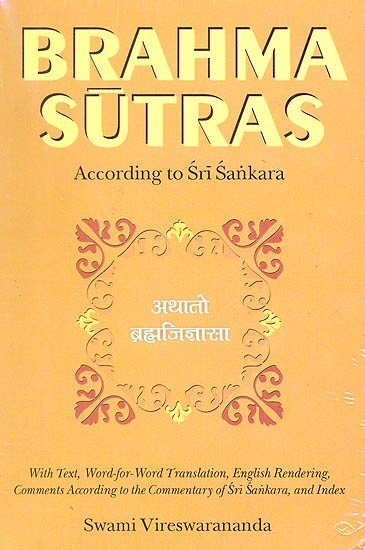Brahma Sutras (Shankara Bhashya)
by Swami Vireshwarananda | 1936 | 124,571 words | ISBN-10: 8175050063
This is the English translation of the Brahma-sutras including the commentary (Bhashya) of Shankara. The Brahma-sutra (or, Vedanta-sutra) is one of the three canonical texts of the Vedanta school of Hindu philosophy and represents an early exposition the Vedantic interpretation of the Upanishads. This edition has the original Sanskrit text, the r...
Chapter III, Section III, Adhikarana XXVIII
Adhikarana summary: Meditations on Vayu and Prana are to be kept separate in spite of the essential oneness of these two
Brahma-Sutra 3.3.43: Sanskrit text and English translation.
प्रदानवदेव, तदुक्तम् ॥ ४३ ॥
pradānavadeva, taduktam uktam || 43 ||
pradānavat—As in the case of the offerings; eva—exactly; tat–that; uktam—has been stated.
43. (The meditations on Vayu and Prana are different owing to their different functions, though the two are essentially one); (it is) exactly as in the case of the offerings (of cakes to Indra the ruler, the monarch, and the sovereign separately). This has been stated (by Jaimini in Purva Mimamsa-Sutras).
In the Samvarga Vidya of the Chhandogya, meditation on Prana with reference to the body and on Vayu with reference to the gods is prescribed. Now many texts declare that Prana and Vayu are one in essence. So the opponent holds that the two meditations can be combined. The Sutra refutes the view and says that they are to be kept apart, in spite of the non-difference in nature of Vayu and Prana; for their functions due to their different abodes are different. Just as oblations are separately given to Indra the ruler, the monarch, and the sovereign according to his different capacities, though he is one god; so the meditations on Vayu and Prana have to be kept apart. This principle is established by Jaimini in Purva Mimamsa.
